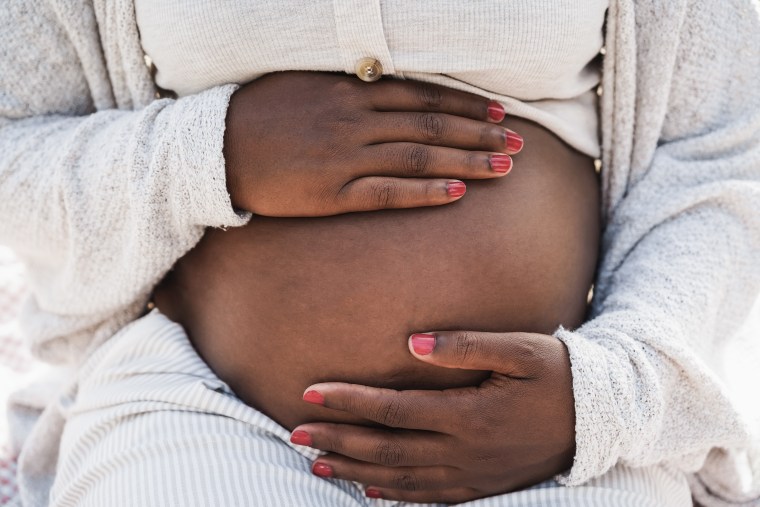Millennials and Gen Zers are more than twice as likely as baby boomers to have been newly diagnosed with high blood pressure during pregnancy, which can raise the risk of severe complications and death, a new study finds.
An analysis of data from nearly 40 million pregnant individuals revealed that people born between 1996 and 2004 were 2.61 times more likely to be diagnosed with high blood pressure during their pregnancies than those born between 1951 to 1959. People who gave birth between 2015 and 2019 were 1.59 times more likely to be diagnosed with high blood pressure during pregnancy than those who delivered between 1995 and 1999, according to the report published on Aug. 24 in JAMA Network Open.
“The most important message from our study is that younger generations have higher rates of new onset hypertension, one of the leading causes for bad outcomes and death of the mother and the baby,” said study co-author Dr. Sadiya Khan, an assistant professor of medicine and preventive medicine at the Northwestern University Feinberg School of Medicine.
The dataset used by Khan and her colleagues did not have certain types of health information, such as body mass index, so the researchers weren’t able to say what was causing the higher rates of hypertension. “But our hypothesis is that it’s for many of the same reasons we’re seeing cardiovascular disease increasing in both men and women: worsening diets, lower activity levels and obesity. Individuals now are entering pregnancy with more excess weight.”
Hypertension during pregnancy can lead to stroke, heart failure and death in the pregnant individual, Khan said. “It can also lead to impaired growth for the baby or require early delivery.”
In the past, it was assumed that the rising rates of hypertension during pregnancy were due to the increasing numbers of people who were older when they got pregnant, Khan said. “But even when we accounted for that, we still saw higher rates of hypertension in the younger generations.”
The new findings underscore the importance of detecting rising blood pressure as early in pregnancy as possible, Khan said.
“One of the challenges is that hypertension during pregnancy can be a silent killer because people often don’t feel anything when their blood pressure is high,” she added. “That’s why it’s important to keep a close eye on blood pressure because it can change very quickly.”
If blood pressure starts to take off, there are medications that can bring it down, Khan said. And if increases in blood pressure are caught early enough, lifestyle changes, such as improving diets and increasing activity, might be enough, she added.
To take a closer look at trends in hypertension during pregnancy, Khan and her colleagues turned to data from the National Vital Statistics System Natality Database, which contains information from the birth certificates for all live births in the U.S.
Unfortunately, the study isn’t able to tell us why younger generations are more likely to be diagnosed with hypertension during pregnancy, said Dr. Soha Patel, an assistant professor in the department of obstetrics and gynecology at Vanderbilt University Medical Center.
“The question we have to ask ourselves is why,” Patel said. “There are a number of potential causes, including the fact that today’s population of pregnant women is different from those from earlier generations, specifically in characteristics associated with an increased risk for hypertensive disorders of pregnancy.”
For example, Patel said, more women are getting pregnant at an older age and the rates of obesity and diabetes have increased. Still, it’s always possible that doctors have gotten better at spotting hypertension in their pregnant patients, she added. Without more information on the health of the Gen Zers and millennials who developed high blood pressure during pregnancy, it’s impossible to know.
But even if we don’t know the cause for the study’s findings, it’s a good idea to monitor blood pressure in women before they become pregnant, during pregnancy and postpartum if they developed hypertension while pregnant, Patel said.
“The study highlights the importance of getting ahead of the situation,” Patel said. “Pre-conception counseling can help identify the women at risk so that prior to pregnancy we can medically optimize their cardiovascular health and hopefully prevent maternal and fetal complications.”
Postpartum monitoring should start sooner than the typical six weeks — even as little as a week after a woman has given birth, Patel said. “We know that hypertensive disorders of pregnancy, whether it’s gestational hypertension or the more severe preeclampsia, increase the risk of cardiovascular diseases later in life,” she added. “Studies show there can be remodeling of the heart itself, which can lead to cardiac complications later, including severe uncontrolled hypertension and heart failure.”

